
 Flash News
Flash News
HIV on the rise in Kosovo, 10 new cases recorded in five months
AMP checks at Kapshtica customs, drug found hidden in a vehicle
Insult and denigration, the Journalists Association of Albania condemns Ristan's attack on the "Piranha" journalist
"Land Rover" abandoned for two years in the Port of Durres, 3 firearms and cartridges found, 24-year-old wanted
Mavraj's message to the Rossoneri: Kosovo is ours forever. Now play football
PL: The country's food safety system does not track food contamination

With the arrival of the hot season and rising temperatures, the risks arising from food also increase.
The Secretary for Agriculture in the Freedom Party, Edmond Panariti, stated today during a statement to the media that the "Food Safety" system in the country has proven that it does not prevent and does not track food contamination, and consequently is not able to guarantee the safety required by consumers.
According to Panarit, this exposes us all to a greater and increased risk of contaminated food.
Statement:
The approach of the hot season and the increase in temperatures will increase the risks arising from food, especially from the intensification of bacterial contamination, because in addition to the conditions suitable for the growth of bacterial agents in the food chain, we will also have an increased flow of food supply due to the massive movement of people in the summer period.
This exposes us all to a greater and increased risk of contaminated food.
All of this will be faced by a "Food Safety" system in the country, which has proven that it does not prevent and does not track food contamination, therefore it is not able to guarantee the safety required by consumers.
Repeated cases of food contamination with bacteria, with chemicals, prove that the food safety system in the country fails to detect, track and prevent the penetration of chemical, bacterial and other contaminants into our foods.
Contaminated food products, whether of animal origin such as meat, milk, eggs, but also those of plant origin such as fruits and vegetables, enter the market and the detection of contaminants occurs when they are present on the market and some of them have ended up in consumers' kitchens.
Consequently, their blocking and confiscation is very difficult and almost impossible.
This was also proven by recent cases of food scandals, of contamination of food products, such as the case of bacteriological residues with salmonella in chicken fillets and meat products, but also of the presence of insecticides.
Unfortunately, the products, even though they had a blocking certificate for the presence of these contaminants, managed to penetrate the market and consequently some of them, despite having a stop order, ended up in the food chain network.
Therefore, we have a serious breakdown of the food safety system in what is essential, which is the prevention of the introduction of contaminants into the food chain, and this cannot change unless we have the courage, the courage and the determination to change the approach to the country's food safety system, which must be based on the European principle, from farm to fork, which is based on prevention and tracing and not simply ascertainment, as unfortunately happens, where every effort is made to identify and ascertain contaminants when they are already on the market and consequently stopping these products is very difficult.
What is required?
We suggest to the Ministry of Agriculture, the National Food Authority, to completely change the approach to facing the problem of food safety in the country.
First of all, an abusive Normative Act, which entered into force after 2017, must be amended, according to which food control can be carried out even after the products have been released on the market, which in a way also legitimizes the penetration of contaminants.
The previous practice must be immediately restored, where food is not allowed to move to the market, it is kept in containers, refrigerated warehouses and released on the market only when all the analyses required under food law and European Union directives have been fully carried out.
Only in this way will we be able to effectively control and prevent the introduction of contaminants into the food chain.
On the other hand, it is entirely possible to equip all collection points with diagnostic kits that detect contaminants, these are marketable diagnostic packages at affordable costs and through state funds, through subsidies, to equip these points with control packages for the presence of contaminants in order to prevent the penetration of contaminants at the origin.
If the product moves on the market, it is impossible to control the distribution of products in all market segments.
Therefore, an increase in food safety funds is also required, these funds are miserable, unacceptable for the challenge that Albania faces with an increasing flow of food products circulating on the market, whether from imports or from domestic production and with the growing concern of the consumer about the insecurity of the foods he consumes.
Therefore, it is imperative that tracking and detection take place where the product is produced, in greenhouses, in stalls and at border points, so that when the trucks enter the border points, their customs clearance should not be allowed without conducting food analyses.
And since we are on prevention, I have another issue to share with you that is no less important.
I believe you are aware that we have an epidemic outbreak in Northern Albania, the Peste de petits ruminants has affected the Northern area of Albania.
It is not enough to isolate, eliminate or prevent the movement of livestock to other areas to prevent this infection, which is known for its very high and aggressive rate of spread.
For this reason, we support the proposal of the Veterinary Order, to carry out a vaccination in the surrounding areas to the foci of infection quickly and without hesitation, in order to create buffers to prevent this infection from spreading to other areas.
To immediately contact and notify the relevant bodies of the International bodies dealing with epizootic controls, the Epizootic office in Paris, To notify the FAO office in Tirana, to make a request to the European Union office in Tirana, to make available the vaccine doses to create precisely these preventive and inhibitory bands of the spread of the infection.
And what is most important, after this preventive vaccination is done, to vaccinate the entire livestock in Northern Albania, only in this way can we save livestock from a risk of extermination because it is an infection with a high mortality rate.
Only with a responsible attitude towards the problems of food security, livestock and agriculture in Albania will we be able to preserve and not allow massive damage to the food chain.
Latest news




Trump warns of 'consequences' if Musk funds political rivals
2025-06-07 21:29:11


14-year-old falls from 6th floor of apartment in Tirana
2025-06-07 20:28:07
"Old enemies don't make new friends"
2025-06-07 19:52:58



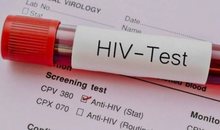
HIV on the rise in Kosovo, 10 new cases recorded in five months
2025-06-07 17:47:59
Fire in the waste field in Vlora, Berisha: Monstrous crime against citizens
2025-06-07 17:27:40

PL: The country's food safety system does not track food contamination
2025-06-07 16:40:37
Fire engulfs Vlora waste field again, mayor: Intentional
2025-06-07 16:20:06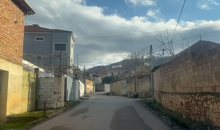
20-year-old man ends his life in Pogradec, police reveal details
2025-06-07 15:47:29
Tourism without heritage: Durrës opens the season with museums closed
2025-06-07 15:27:30

Gjendet një person i pajetë në Tiranë
2025-06-07 14:54:23
Detailed control, the rules that fans must follow in the Albania-Serbia match
2025-06-07 14:32:19
A heat wave will sweep across Albania next week
2025-06-07 14:10:18




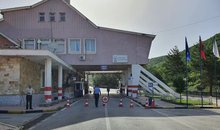
AMP checks at Kapshtica customs, drug found hidden in a vehicle
2025-06-07 12:15:26
Kosovo Assembly fails to be constituted even after 28 attempts
2025-06-07 11:58:58


Oh Albania, you have no old age!
2025-06-07 11:05:01
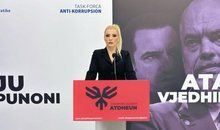

Mavraj's message to the Rossoneri: Kosovo is ours forever. Now play football
2025-06-07 10:10:52


Why are Ukrainians being accused of arson at Keir Starmer's properties?
2025-06-07 09:16:24
Foreign exchange, how much foreign currencies are sold and bought today
2025-06-07 09:04:55

Horoscope, what do the stars have in store for you today?
2025-06-07 08:31:29
Weather forecast for Saturday, here's what the temperatures will be like
2025-06-07 08:17:35
Posta e mëngjesit/ Me 2 rreshta: Çfarë pati rëndësi dje në Shqipëri
2025-06-07 08:01:23
Heavy metals in the Drin River, causes of cancerous diseases
2025-06-06 22:54:02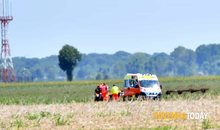


Works in Spaç, Lubonja: Destruction of collective and historical memory
2025-06-06 21:54:32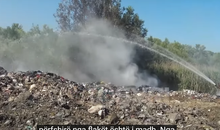

DASH: Balkans, part of American strategy for expelling migrants
2025-06-06 21:12:33

Ilir Shqina, a diplomat, and her business partner Grida Dumas were suddenly born
2025-06-06 20:21:46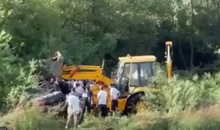

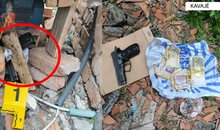
Couple injured in Kavaja, police find firearm hidden in wall
2025-06-06 19:05:19

EULEX mandate in Kosovo extended until 2027
2025-06-06 17:58:20
These are the 3 zodiac signs that will be favored in the next decade
2025-06-06 17:50:52
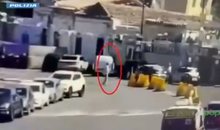

Anthropology
2025-06-06 17:06:00
EU supports International Criminal Court after US sanctions
2025-06-06 16:47:51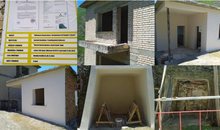
Gonxhe ignores concerns about Spaçi and defends the continuation of the works
2025-06-06 16:31:42
Providing online services, report: Institutions, delays in update requests
2025-06-06 16:24:10
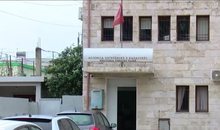
The head of the Vlora Cadastre is changed again
2025-06-06 15:58:49
With a rounded belly, Dafina Zeqiri enjoys the holidays with her partner
2025-06-06 15:36:06

Foods that should not be missing from the Eid al-Adha table
2025-06-06 15:04:48
They exploited girls for prostitution in Vlora, 28-year-old arrested
2025-06-06 14:44:26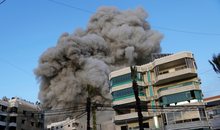
Israel warns of more attacks in Lebanon
2025-06-06 14:26:30
The race for the head of the BKH, the deadline for applications ends today
2025-06-06 14:15:18
14-year-old girl in Vlora rescued after risking drowning at sea
2025-06-06 14:04:23
Challenge with Albania, Serbian team arrives in Tirana
2025-06-06 13:49:04
He injured the married couple in Rrogozhina, here is who the perpetrator is
2025-06-06 13:34:20

Berisha wishes Eid al-Adha: Blessings to your families and our nation
2025-06-06 13:09:28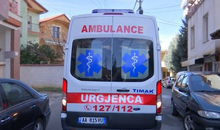
He injured his neighbors with a gun, the perpetrator surrendered to the police
2025-06-06 13:02:47

Tom Cruise enters Guinness World Records
2025-06-06 12:38:48
From orange peels to bananas, discover the foods that help you with stress
2025-06-06 12:28:53


How did the feud between Donald Trump and Elon Musk start?
2025-06-06 11:52:32
The prosecution sends 5 Kosovar citizens to trial for drug smuggling
2025-06-06 11:33:56
21-year-old injured with knife in Saranda
2025-06-06 11:24:10
Kosovo citizens flock to the Albanian coast, long queue from Morina
2025-06-06 11:11:07
Gunfire in Kavaja, shot at a married couple
2025-06-06 11:05:01
Merz: Bashkëpunim i ngushtë Gjermani-SHBA
2025-06-06 10:45:35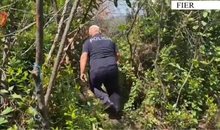
A marijuana plantation is found in Cakran, a 24-year-old man is arrested
2025-06-06 10:25:53
Gianni De Biasi shows the formula for how we can win against Serbia
2025-06-06 10:08:57
Hoxha: The CEC was one of the main architects of the destruction of free voting
2025-06-06 09:52:16
Foreign exchange, June 6, 2025
2025-06-06 09:33:01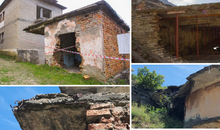


Accident on the new Kukes bridge, three vehicles collide
2025-06-06 08:43:06
Horoscope, what do the stars have in store for you today?
2025-06-06 08:28:14
Clear weather with few clouds, the forecast for this Friday
2025-06-06 08:13:54

